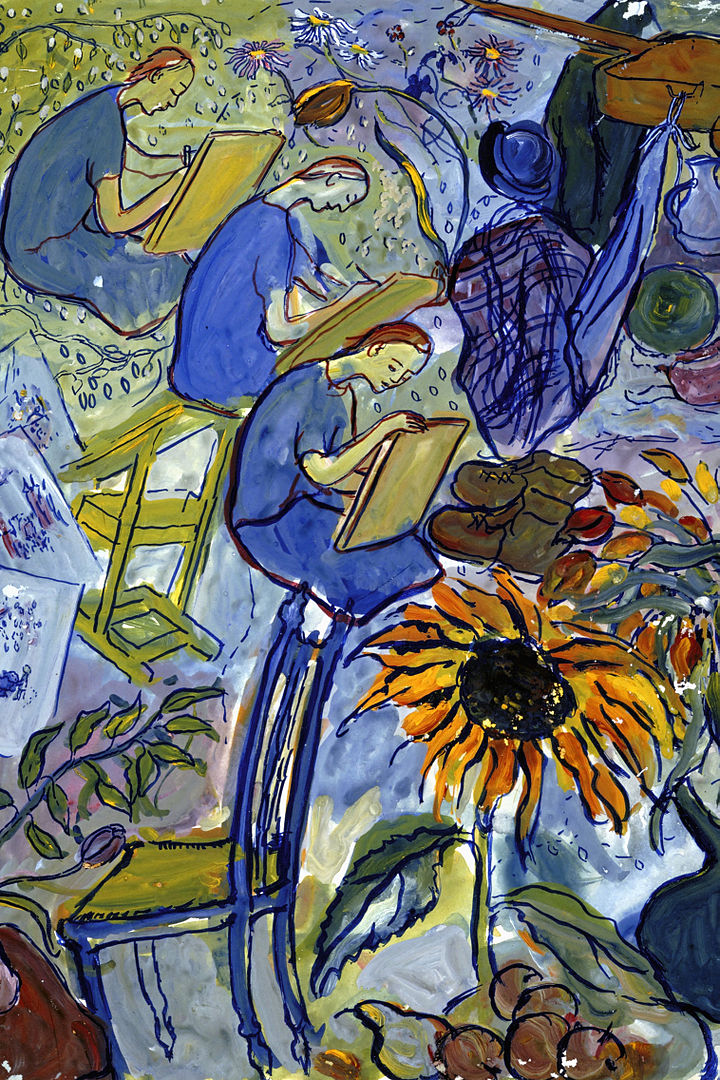‘Who should write about trauma? Who should write about their life experiences; who should publish their experiences? Whose suffering is ‘valid’, and whose isn’t?’ These are questions we often put to ourselves when thinking about writing that which is meaningful and of value both to ourselves and to others.
These are also questions we buoy about in our minds when thinking about what to read next, whether we are reading for pleasure (hard, given the crowd of new distractions, changes and sorrows that emerged globally in the past couple of years) or as part of the healing process (a book read while searching for answers, or while trying to come to terms with loss).
Trauma: Essays on Art and Mental Health is a collection of over thirty essays, edited by Sam Mills and Thom Cuell. There is the exploration of wide-ranging topics relating to mental health and mental illness; there is the consideration of why trauma occurs, and there are various methods given through which we can think about our circumstances differently (where possible…). There is melancholy, there is acceptance. There is exasperation at political choices; there is incomprehension at man’s inhumanity to man; there is the struggle of authorial voice when recalling excruciating torment. There is suffering that is unspeakable, put into writing. There is the mundane, and the sublime. There is quiet introspection laced with self-loathing. There is the healing power of art. Together, these essays form confessional writings for the covid age.

Confessional writings have a long history: people invariably mention the Confessions of Saint Augustine and Thomas de Quincy’s 1821 work Confessions of an English Opium Eater as works that have “stood the test of time” and which showcase acute self-analysis. But what about the twentieth century? What about the twenty-first century, looking back at the twentieth?
In the essay In the mean time, Catherine Taylor recalls a visit to the Jewish Museum to see an exhibition of Charlotte Salomon’s series of gouache paintings Life, or Theatre?, “depicting her life in Berlin before and after the Nazi rise to power, and her later exile in France until she was transported east and gassed at Auschwitz in October 1942 at the age of 26”. Taylor recalls being repeatedly drawn to a painting of Salomon’s bedroom the night before she left Berlin: a vignette of horror.
In Soma, Marina Benjamin thinks of Virginia Woolf’s writings on “the perspective-changing properties of illness, called the ‘daily drama of the body’” and reflects on her own changing voice, the menopause, and what it is to write. Flashbacks, nightmares, compulsive rumination over factors: the traumatised, writes Jenn Ashworth, “live a double life…They are out and about, in the world, functioning well. And they are also flies, trapped in the long-set amber of their disaster”, compelled to “return to the moment, to fix it, to survive it”. Cynics will say “well, lucky are those who are able to survive the moment”.
How can we release others from the long-set amber of their disaster? For some, the amber is only in the process of setting: in The Clown Susanna Crossman writes movingly about her time working as a clown in clinical drama therapy practice, in settings ranging from French child psychiatric units to international academic conferences, and writes of the importance of play and levity when dealing with trauma, while David Lynch writes compellingly of the powers of creativity and Transcendental Meditation as a method of mitigating debilitating depression.
All in all, this anthology strikes me as a strong argument for the value of compassion: through reading it, we can hope to become Suitable Listeners; we may recognise fellow sufferers. We can think about how to help others, and how to act upon this. We can hope to heal ourselves or at least to think about ways of doing so, even when it seems too much to muster. It’s an argument for more funding for mental health services; an argument for speaking truth to power; an argument for the value of psychotherapy and for the erasure of mental health stigmas.
Trauma: Essays on Art and Mental Health is available from publisher Dodo Ink. 416pp. Paperback, £10.99
Main image shows Charlotte Salomon’s Leben? oder Theater? Ein singspiel

